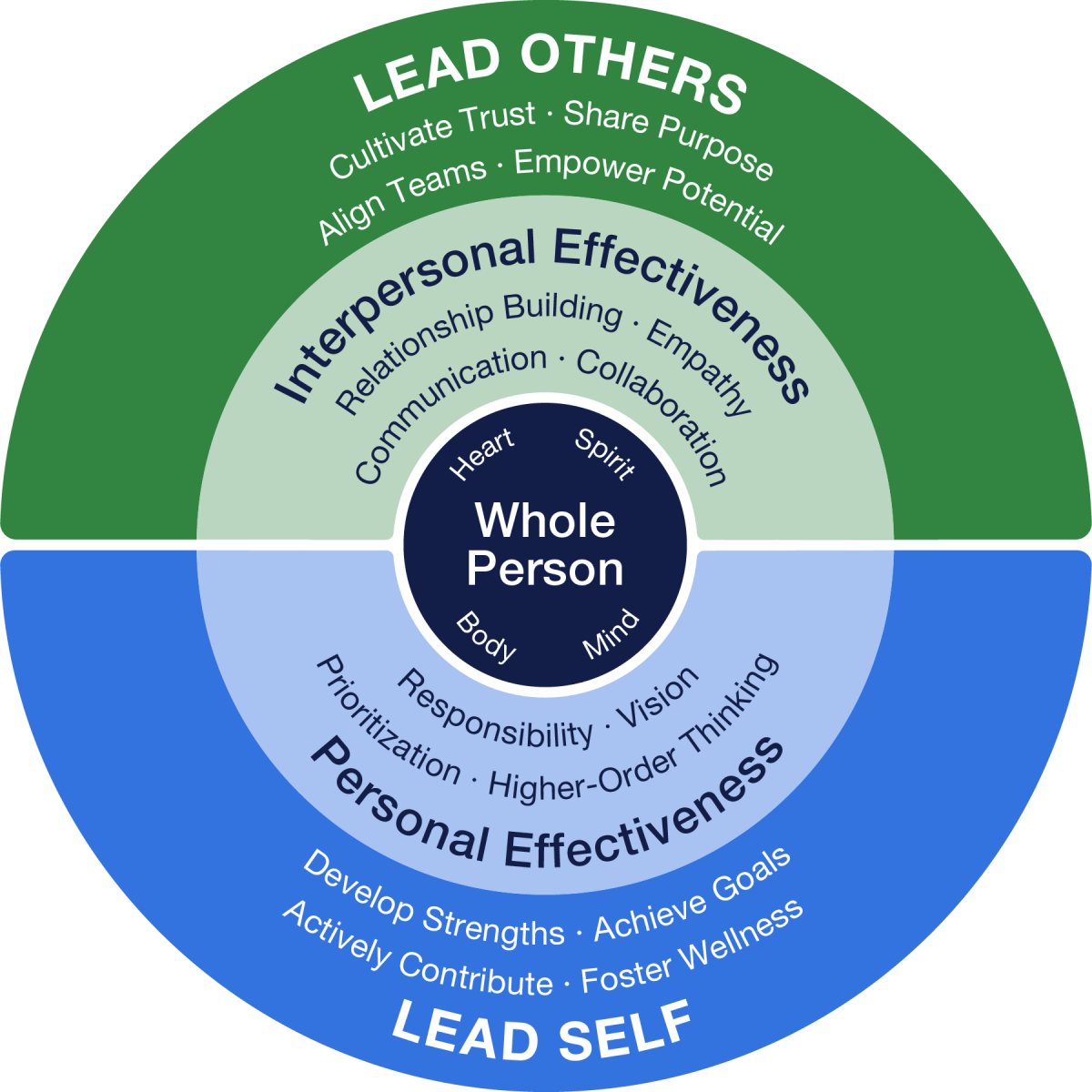
The Student Leadership Portrait™ (SLP) outlines the specific skills and competencies student leaders are developing at Leader in Me Schools in order to succeed in the classroom and beyond. The model has four broad categories, with four competencies per category, all of which help students learn to lead themselves and others.
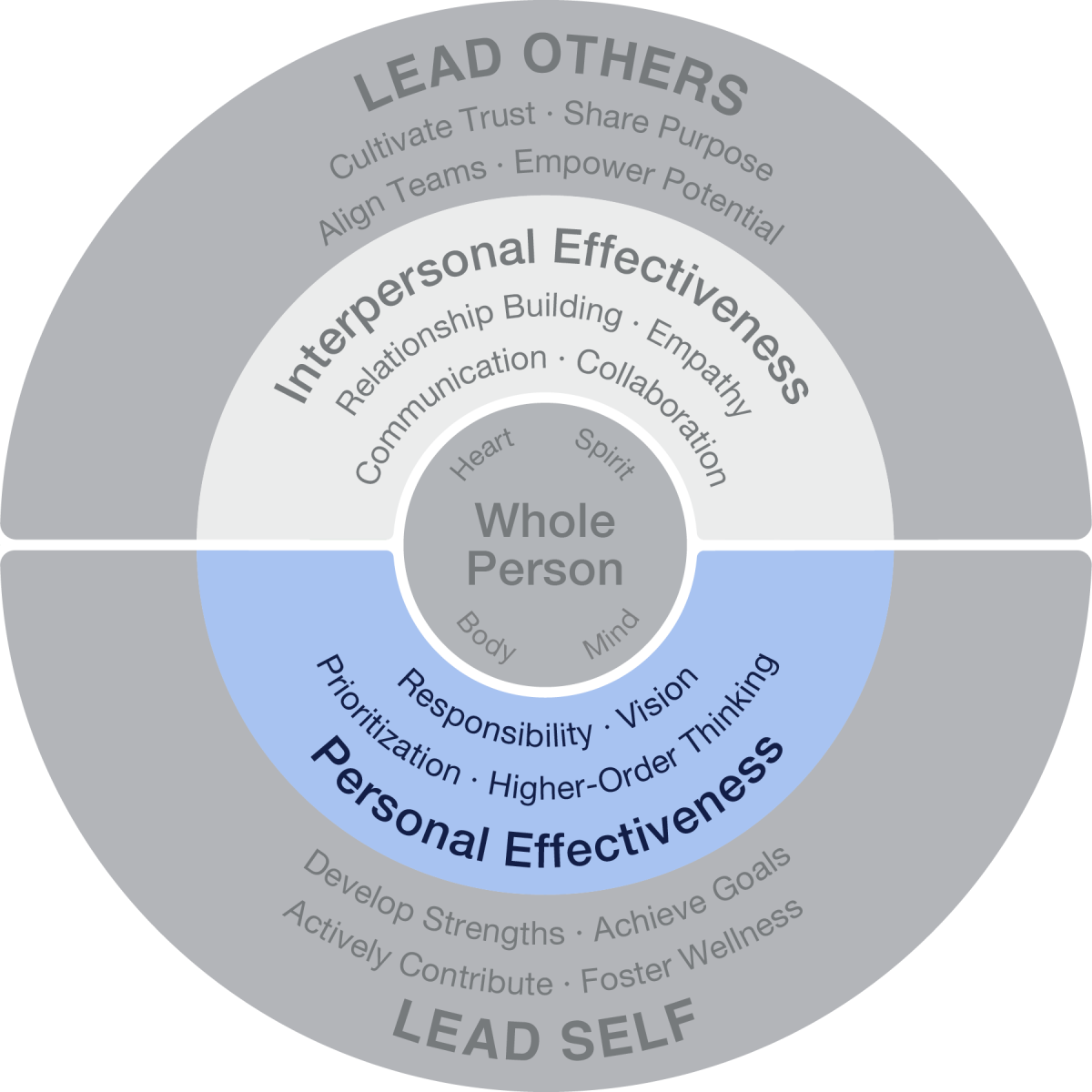
| RESPONSIBILITY
The ability to be aware of one’s actions and their impact, take proactive steps towards achieving goals, and manage emotions effectively.
|
VISION
The ability to imagine a meaningful future outcome and create a plan to get there.
|
| PRIORITIZATION
The ability to plan and allocate one’s time based on goals and values, and show the discipline to follow through.
|
HIGHER-ORDER THINKING
The ability to evaluate information, reflect on one’s own thought processes, creatively solve complex problems, and lead one’s learning.
|
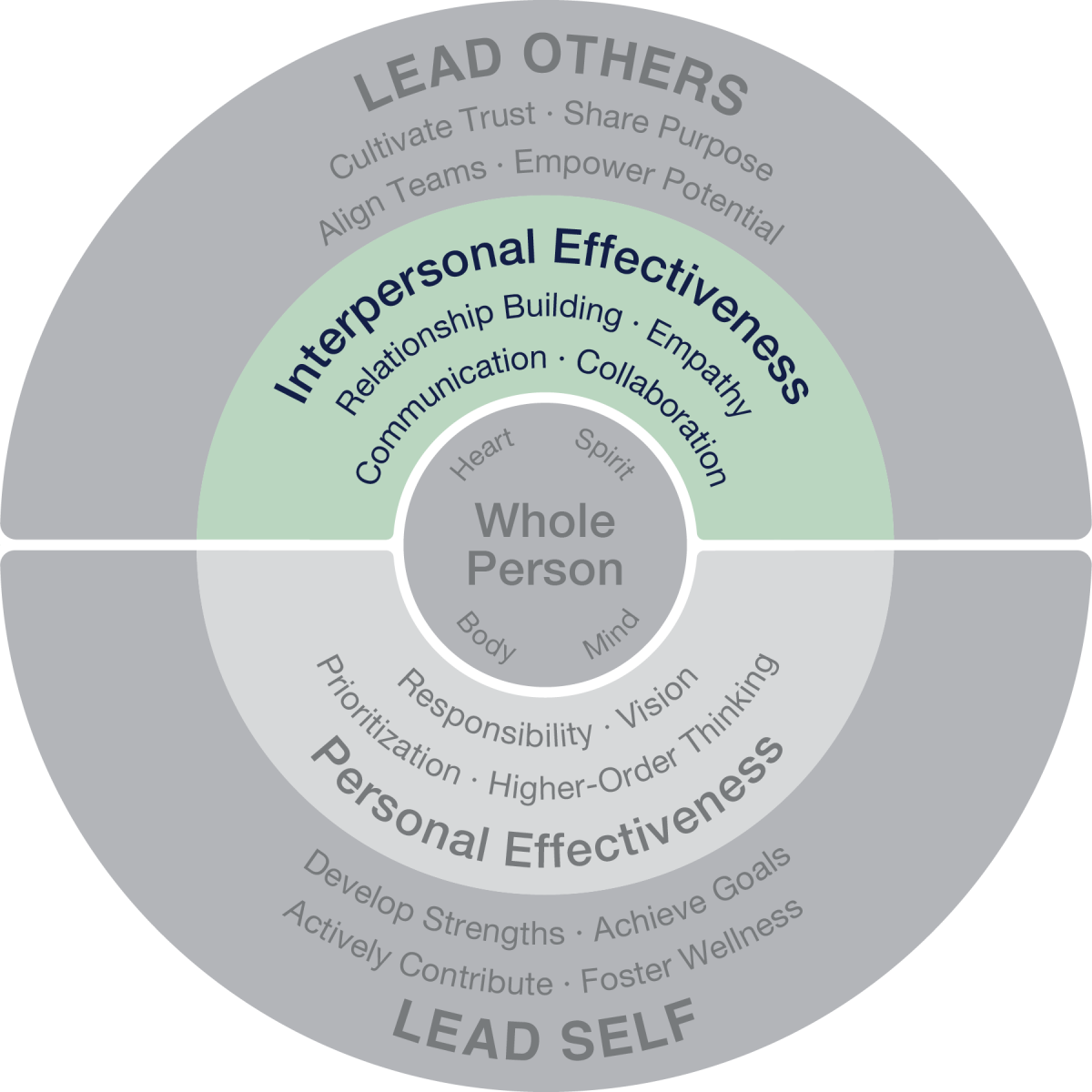
| RELATIONSHIP BUILDING
The ability to develop relationships through consistent interactions that build trust and that balance one’s personal needs with the needs of others.
|
COMMUNICATION
The ability to reach mutual understanding with others, convey thoughts clearly, and effectively use body language to communicate.
|
| EMPATHY
The ability to understand and respect other people’s thoughts and feelings with the intent to see their perspective.
|
COLLABORATION
The ability to work together in a way that draws on everyone’s unique strengths and ideas in order to find the best solution.
|
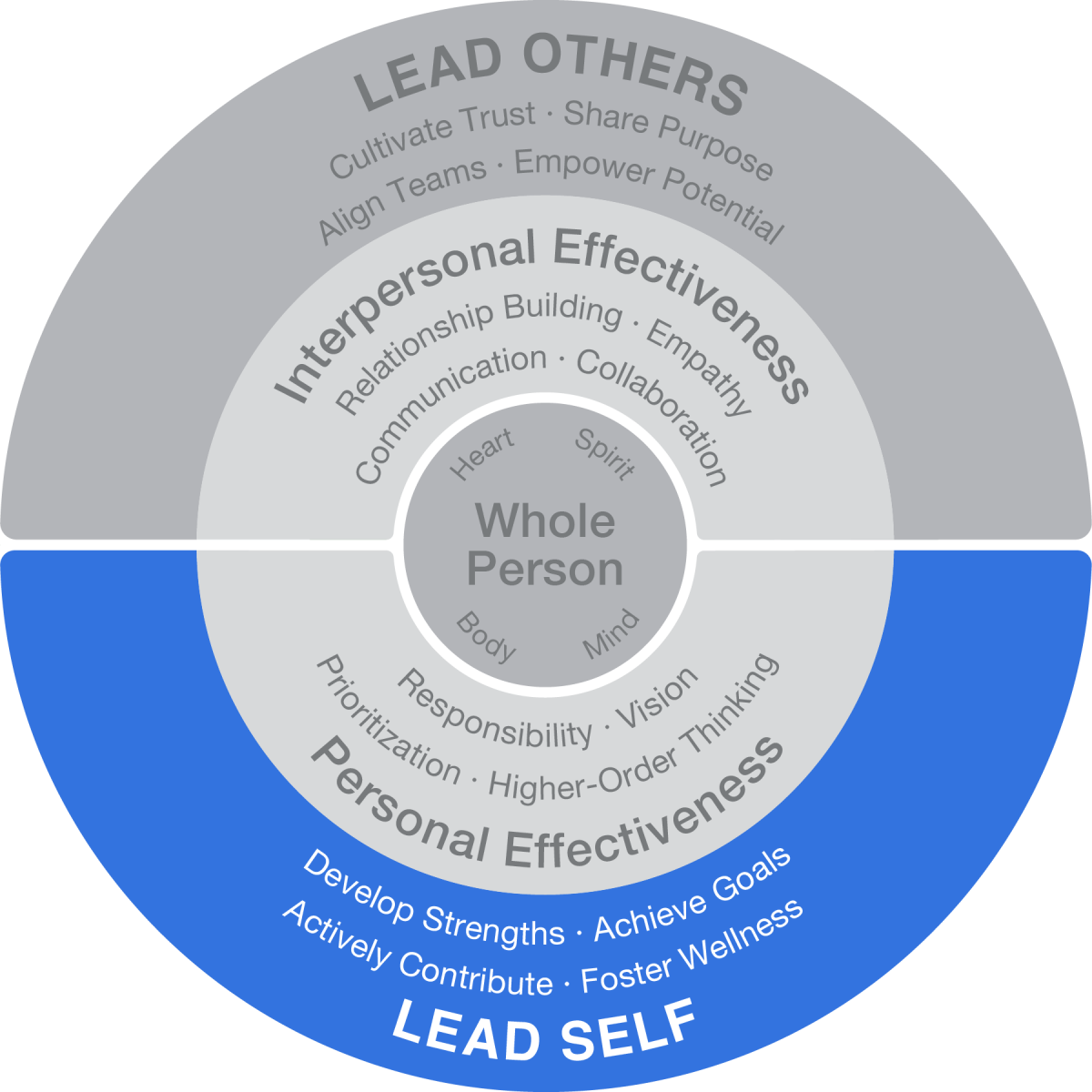
| DEVELOP STRENGTHS
The ability to identify one’s own talents and areas of passion and the determination to develop them.
|
ACTIVELY CONTRIBUTE
The awareness and ability to connect one’s own unique talents and strengths to a need in the world and take principled action that creates positive change.
|
| ACHIEVE GOALS
The ability to set a focused goal, identify the steps to take, track progress, and accomplish the desired outcome.
|
FOSTER WELLNESS
The commitment to consistently grow one’s own capacity through intentional choices that promote balance and resilience.
|
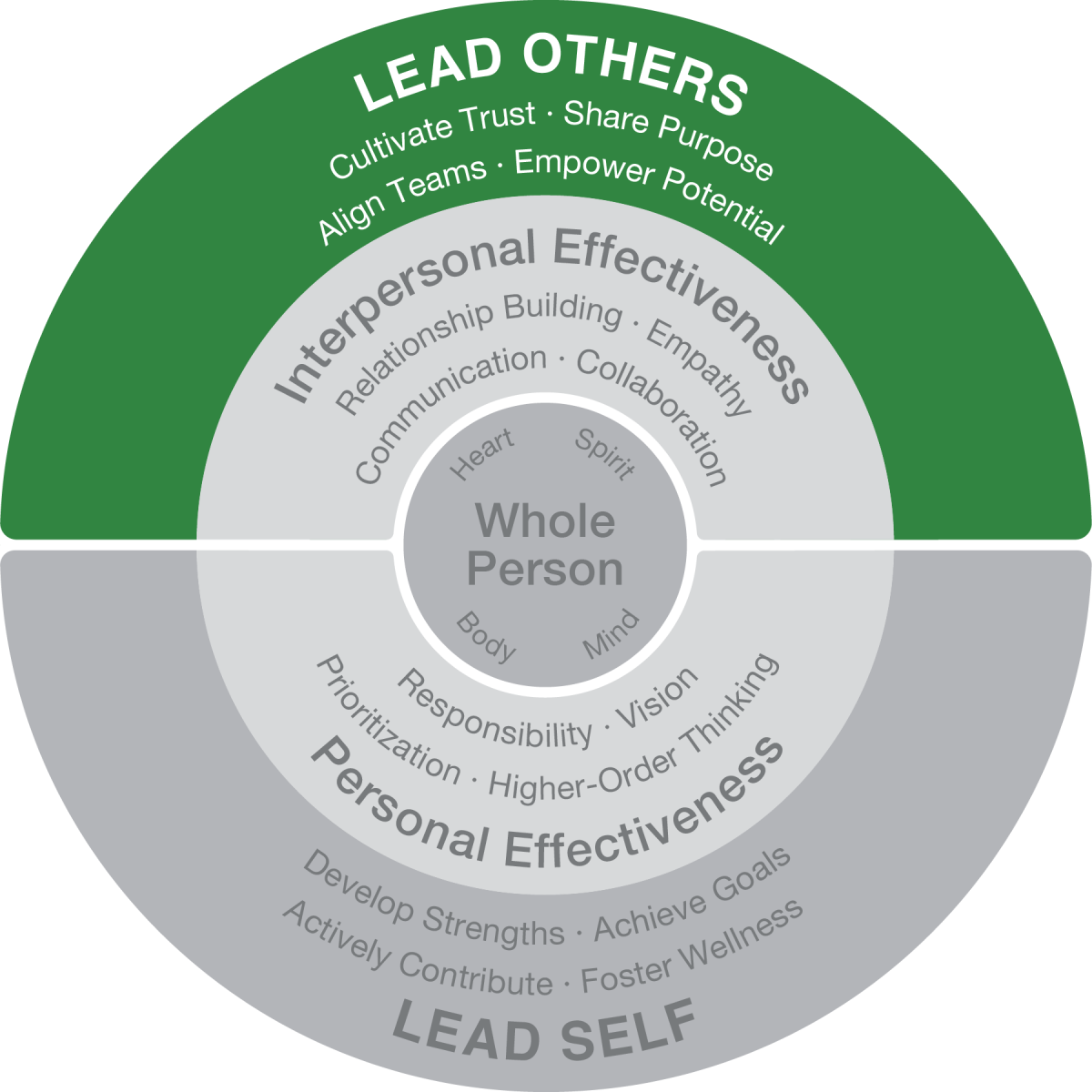
| CULTIVATE TRUST
The ability to model both character and competence in a way that builds trust and inspires confidence.
|
ALIGN TEAMS
The ability to organize people, resources, and systems to successfully execute a plan.
|
| SHARE PURPOSE
The ability to work with others to develop and communicate a compelling vision and actionable plan.
|
EMPOWER POTENTIAL
The ability to encourage others to use their gifts and talents to contribute to the team’s purpose.
|